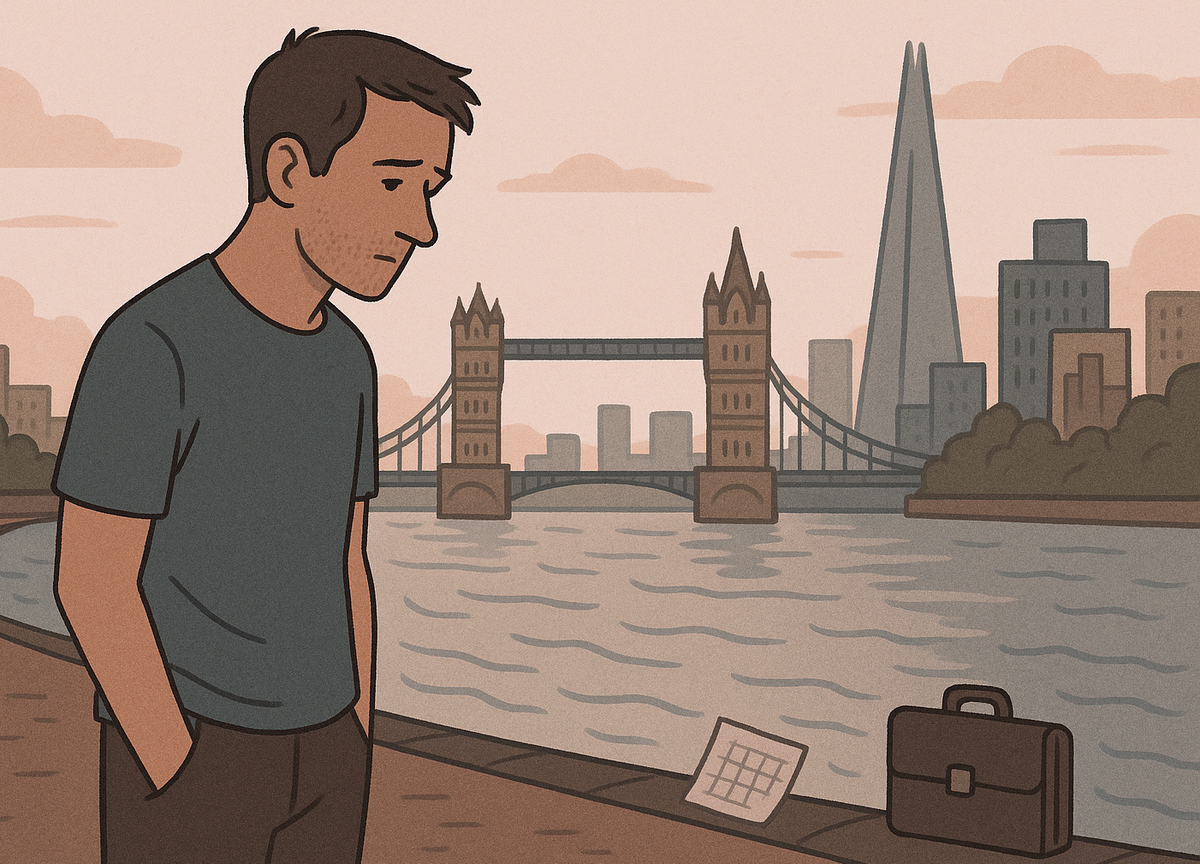Reflections on a Meandering Career Path
Without a clear sense of direction, I followed the default path. I did the things that looked like progress. But now, when I glance upward at the next rung, I don’t see opportunity—I see cost.

Fifteen years ago, I stepped into the workplace without much of a plan—just a quiet acceptance that this was what adults did. The current carried me forward, gently but persistently, toward places I hadn’t intended to go. Living near London meant opportunity was close at hand, but I rarely paused to consider whether any of it suited me. I simply followed the tide.
I didn’t have a calling or a craft in mind. There was no master plan—just the sense that I ought to be earning. So I drifted into a corporate role. The kind that’s stable. Respectable. Well-paid. It didn’t feel like a conscious decision so much as the absence of one.
The Illusion of Progress
Looking back, I struggle to measure what I’ve actually built. I’ve gained skills, yes—but mostly personal ones. Adaptability. Patience. Communication. These were forged more in spite of the environment than because of it. The workplace, over time, has become more hierarchical, more political. Less about doing good work, more about looking like you’re doing good work. There’s something hollow in that.
The further up I looked, the more I saw stress, burnout, and performance over purpose. Promotions came, the salary climbed, but so did the unease. Was this really where I wanted to go—or just where I was being swept?
Shifting Definitions of Success
In earlier years, I measured success in output and recognition. Now, success feels more like walking out the door at 5:30pm with a clear head. It’s mentoring someone who’s just starting out. It’s knowing I’ve done something useful—even if it won’t win awards or bonuses.
The work itself? Increasingly transactional. We don’t build; we manage. Meetings fill the day. Goals are short-term. Quick wins are celebrated more than thoughtful contributions. Paul Graham describes this as a “manager’s schedule”—task-focused, busy, reactive. What’s missing is the “maker’s schedule”—blocks of uninterrupted time for depth, creativity, or real problem solving.
On Motivation and Meaning
It’s a strange arc. Early on, you’re fuelled by ambition, eager to prove yourself. But over time, the gap widens between effort and reward, between appearance and authenticity. The larger the organisation, the easier it is to feel like a number. Not necessarily mistreated—just… unrecognised. Misunderstood. Misaligned.
Without a clear sense of direction, I followed the default path. I did the things that looked like progress. But now, when I glance upward at the next rung, I don’t see opportunity—I see cost.
Looking Forward
This reflection isn’t an exercise in regret. It’s more like orientation—stopping long enough to check the map. I’m grateful for stability. For experience. For the people I’ve met along the way. But I also know now what I didn’t then: that drift is a direction too, and not always one worth following.
So I’m thinking more carefully about what comes next. About where I can do meaningful work. About how to align energy with intention. And perhaps, most of all, about how to make peace with the winding path that brought me here.